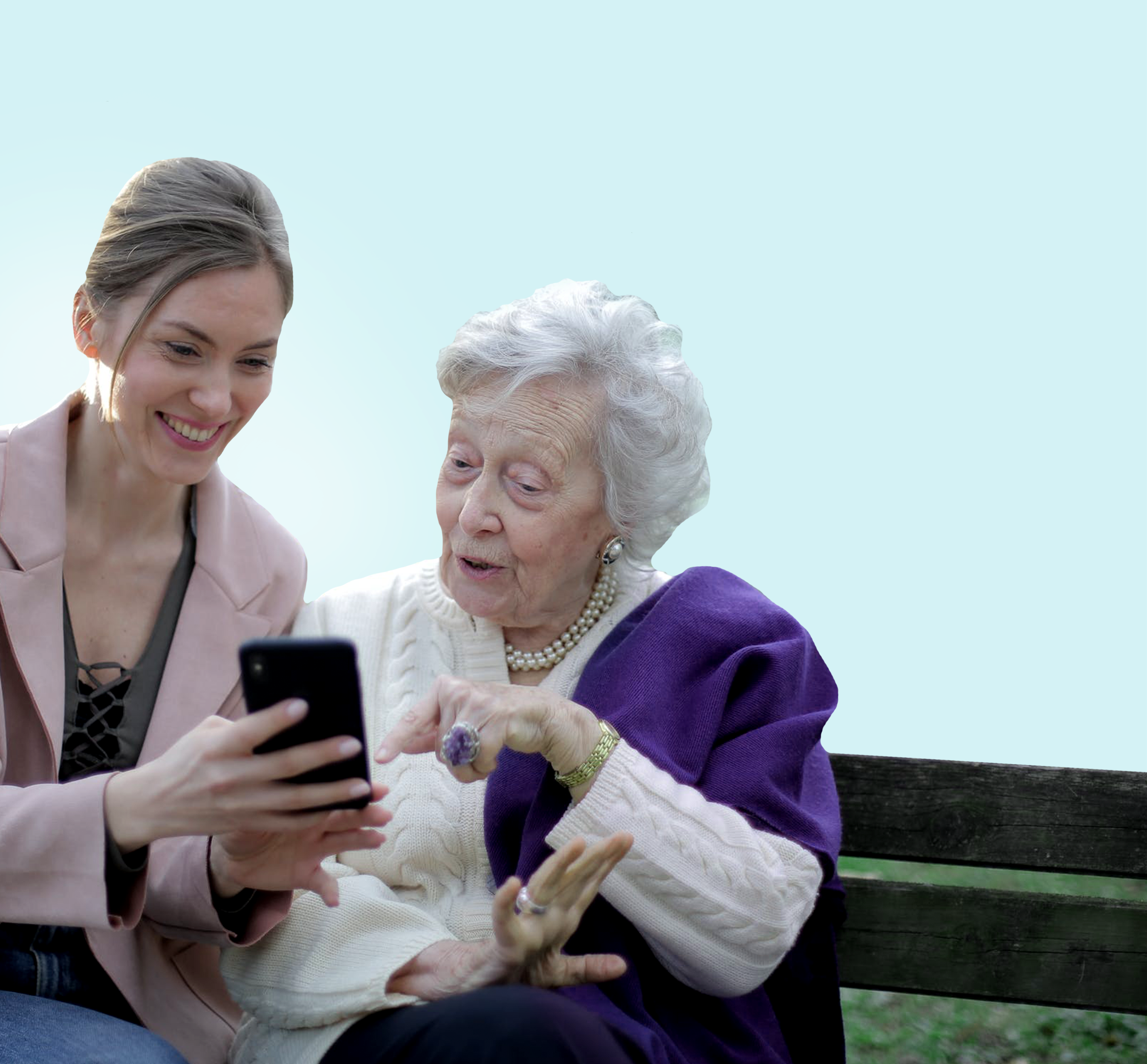
Tackling the information bubble for Older Adults
| Meet FYE: A bot that bundles with any social media app to help discern the truth out there
The Challenge
We hoped to learn how senior citizens are impacted by the information bubble that they live in online and gain an understanding of how senior citizens discern truth and authenticity in news and media.
How might we provide a succinct experience to make Older Adults digitally street smart?
| Other teammates: Wilson Wu, Wiryan Titarahardja, Jenn Jiang
| Mentors: Dana Rogouzeos
| My contributions: Design Resarch, Synthesis, User Experience Design
| Time span: 8 weeks
The Solution
FYE
[For your education]
/fi.y/
A unique fact checker app to help you on your journey to be digitally street smart.
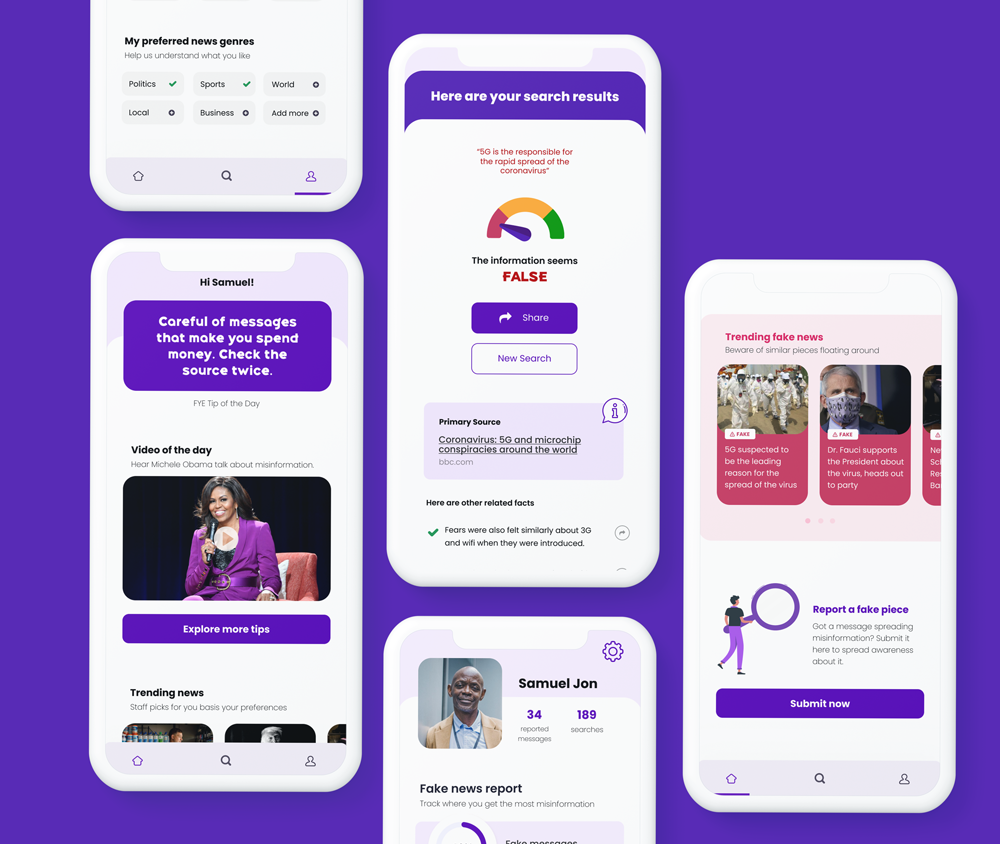
Breaking it down
Older Adults: Senior Citizens in U.S demographic are defined as those of age 60 and above (by AARP)
Information Bubble: Intellectual isolation that can result from personalized searches and internet algorithms that displays results and contents based on information about the user or their history.
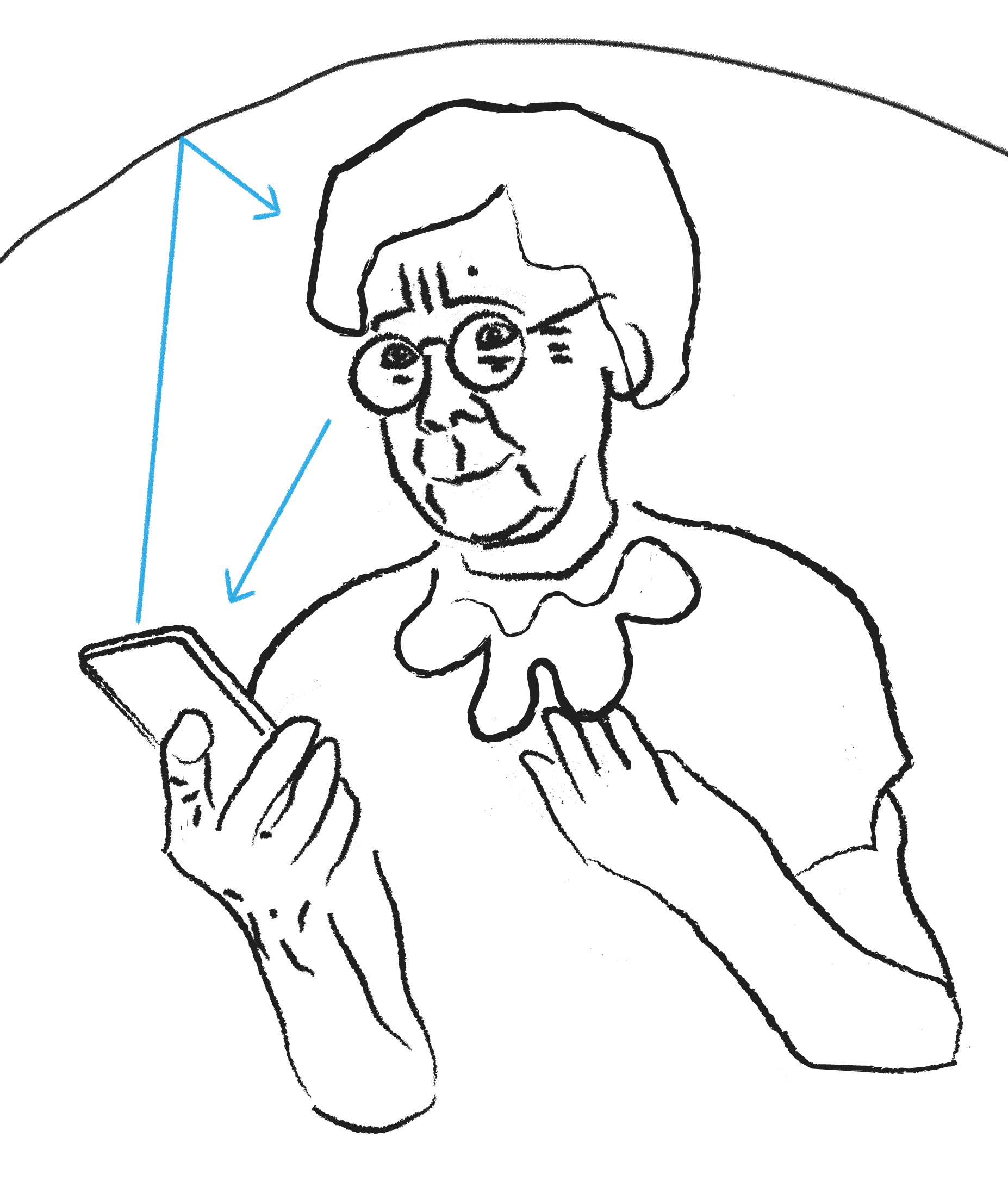
A representation of the digital consumption loop.
Our Secondary Research said..
"Facebook is the most popular social network among seniors and the fastest growing age demographic on the platform."
11% of Facebook users (14.8 million people) are seniors.
“Older People Shared Fake News on Facebook More Than Others in 2016 Race, Study Says"
Another analysis Shows How Viral Fake Election News Stories Outperformed Real News On Facebook
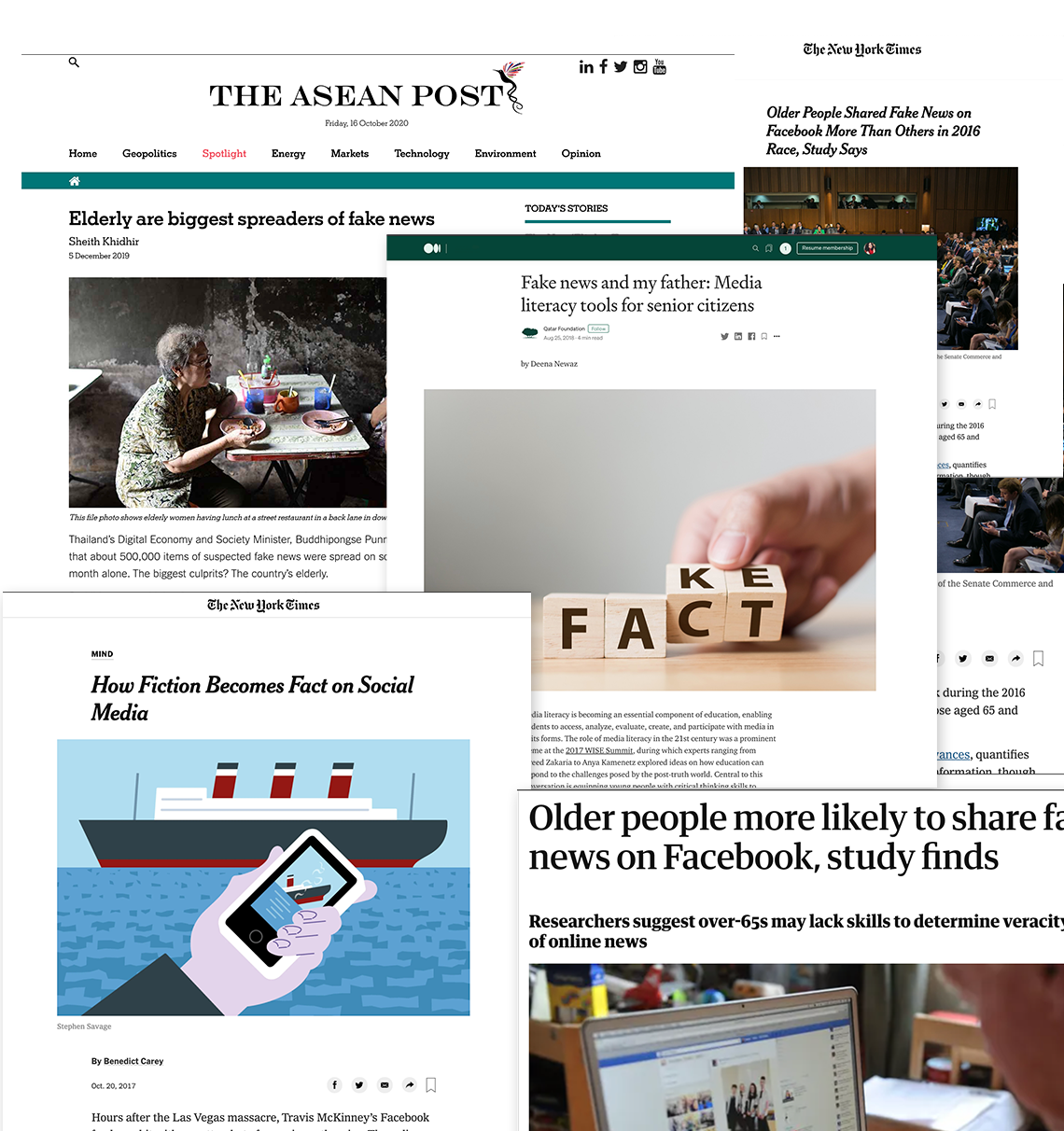
We sat and discussed our biases
“Seniors tend to trust information from relations rather than news, government and media.”
“Seniors are more gullible when it comes to technology than the younger generation, irrespective of their wisdom."
“Everyone above the age of 60 is old and part of the same target group.”

Interviews with Older Adults
Armed with all of this, we set out to talk to six people from our demographic. Here are a few quotes from them.

“I know my friends for a long time, so I know that they won't spread fake news. I trust them.”
"I know I might be fooled. And I feel I should be more proactive in researching but I'm lazy.”
“I started the technology that everyone is using, yet everyone forgets that while designing for us.”
“I make my kids take food that is good for them- I get it all from WhatsApp forwards.”
“I think, you know, people have to use their heads and determine what is the truth in this news.”
“News coming from your family will be true only. Why will they spread something that is not true?”
Interviews with Experts
We also reached out to two experts to help us truly understand the nuances. Barry Katz, a design Historian helped us study the history of media and how the older adults have grown with that. Gretchen Addi, a design consultant at Ideo, brought to us the perspective of ageism and how most platforms these days aren’t designed for Older Adults.
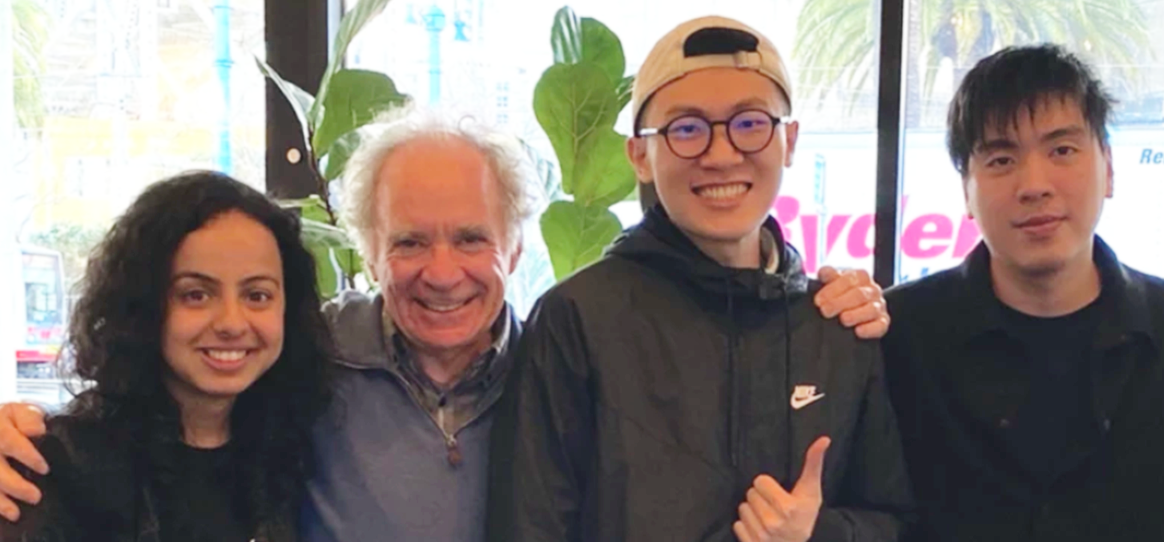
With Barry Katz
Author, Professor at CCA & Stanford, Design Historian
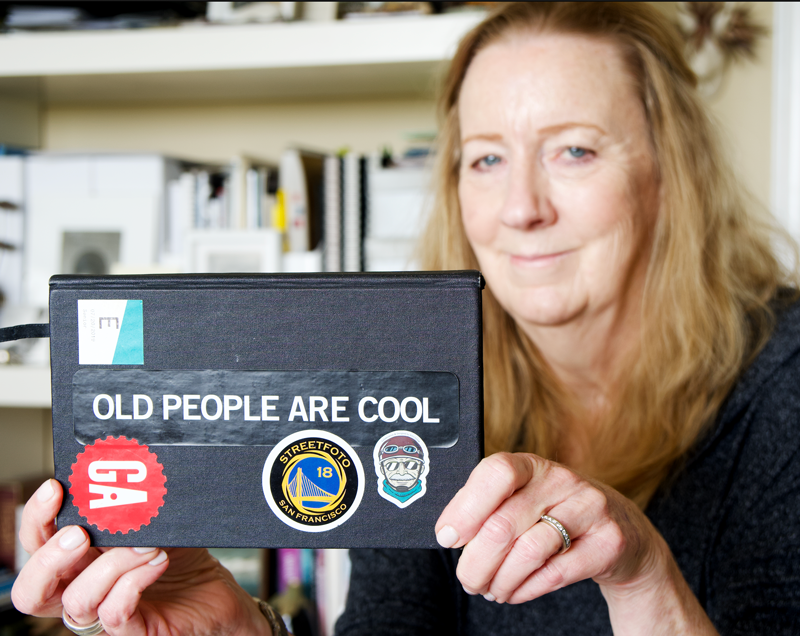
Gretchen Addi
Design Consultant, IDEO
Framing and sorting
Rich with all the knowledge that we had learnt, we started mapping out all these interviews and color coded them. As we arranged these post-its over and over, an initial very broad framework and multiple themes started to emerge.
Broad themes

Overwhelmed
So many platforms, so many new sources…

Peer Pressure
Is on a platform because their loved ones are.

Trust vs distrust
More trusting of friends and family than media.

Offline is better
Older Adults prefer physical meets.

Not being true self
Hesitant of truly sharing their views.

Ageism
Everybody over 60 is treated the same.
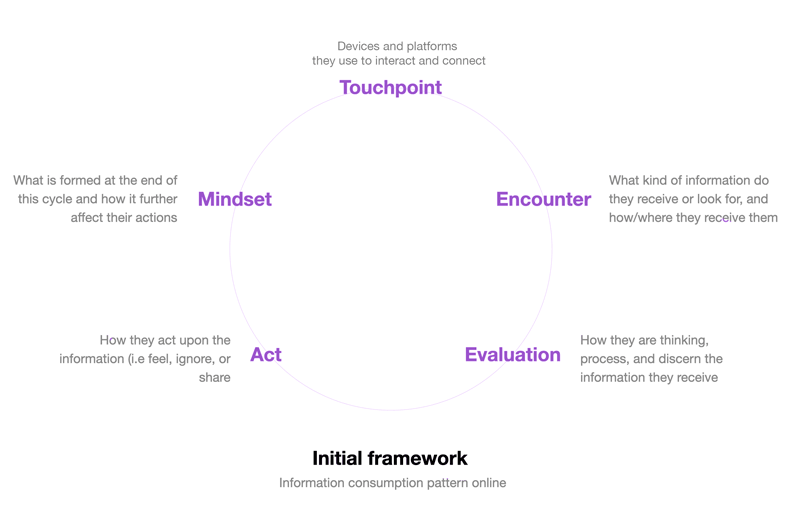
<
Their Online consumption pattern
From whatever their touchpoints online are, Older Adults encounter information, evaluate it in their own particular ways, act upon it or ignore it which forms a mindset, which in turn reinforces the information they encounter on these touchpoints.
>
Bubble forms mindset and vice versa
One side the bubble reinforces what someone sees, however they are also reinforced by the habits you generate. On the other side their mindset is reinforced by what is presented by them from the outside world, and in return share back or act upon said information.
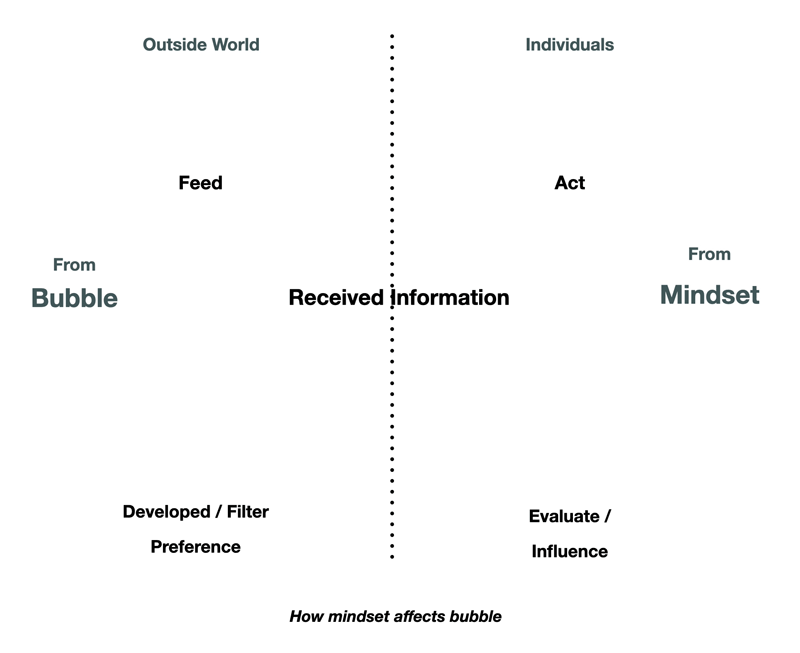
Insights
Older Adults don't necessarily go out of their way to find out what is the truth but instead rely on their own experiences to believe whatever seems right.
Older Adults have trouble the differentiating between true and fake media websites as they didn't develop the digital street smarts with time.
Older Adults are overwhelmed by the numerous new platforms and sources, therefore they tend to choose legacy media houses as credible sources.
Older Adults love for friends and family gets them on different platforms helping them to stay connected with the world.
Which led to..
How might we provide a succinct experience to make Older Adults digitally street smart?
Why Succint?
Older adults already have enough platforms to maintain. We want to meet them where they are, right when they encounter information, as that is the greatest impact we can make.
Why Digitally Street Smart?
Older adults have a lifetime of real world experience. This may or may not have converted digitally, but they do want to learn. and we wanted to help them grow digitally too.
Design Principles

Build trust through facts
Aim to build trust by using validated information only

Meet them where they are
We leverage the platform or tool that they are already comfortable and familiar with

Acknowledge the whole picture
We want enable our audience by showcasing all sides so they can break out of their bubble

Begin with quick and sharp content
For ease of consumption, our content should be quick and be in everyday easy language

De-clutter, not overwhelm
Design to push curated content based on selected choices in times of information overload.
Explored Concepts
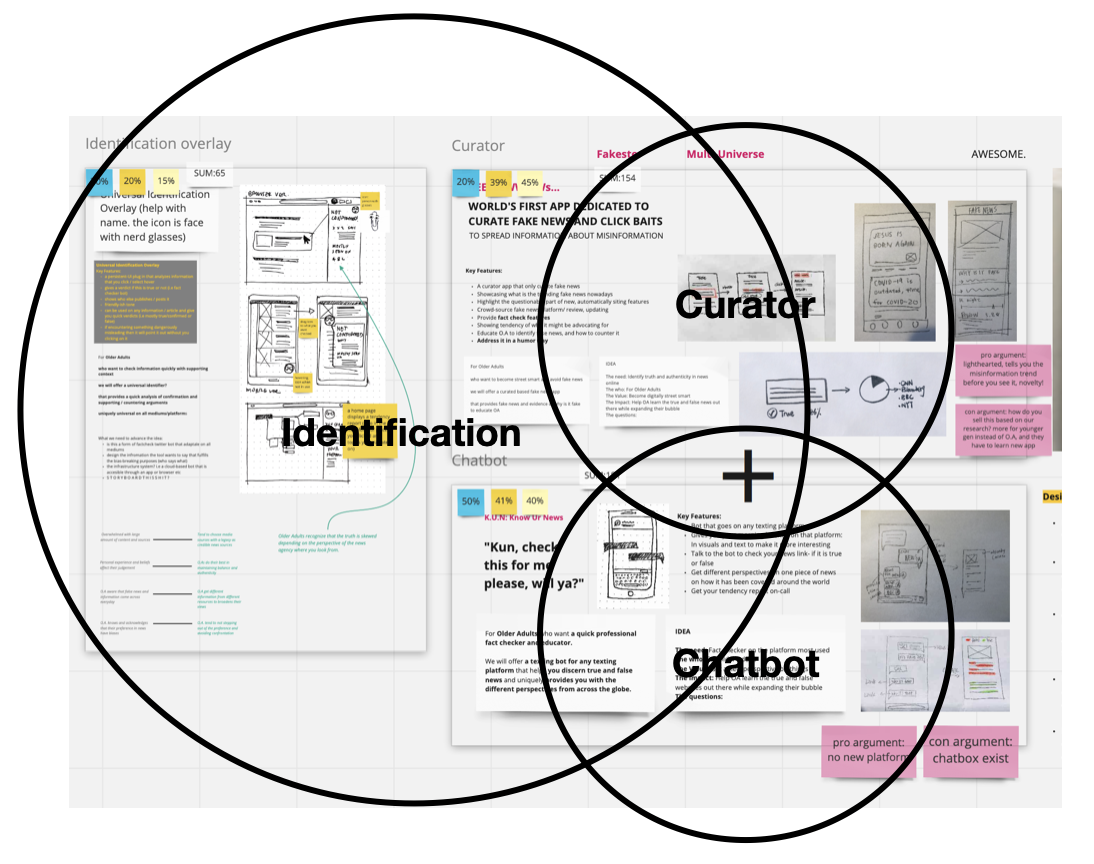
Identification
Browser plugin. Acts as an overall scanner of any article. Helps you see which facts are true.
Curator
The Curator helps you get a balanced news information diet straight to your inbox. This helps you break your bubble.
Chatbot
Fact checker chatbot for all your forwards. Provides other relevant content and trends. This is the direction that excited us the most, since the interaction is so organic and intuitive for the older adults population.
The solution
FYE: For Your Education

A texting bot for any texting platform that helps you discern true and false news. It also uniquely provides one with different perspectives from across the globe.
For Older Adults who want a quick professional fact checker and educator.
Storyboard
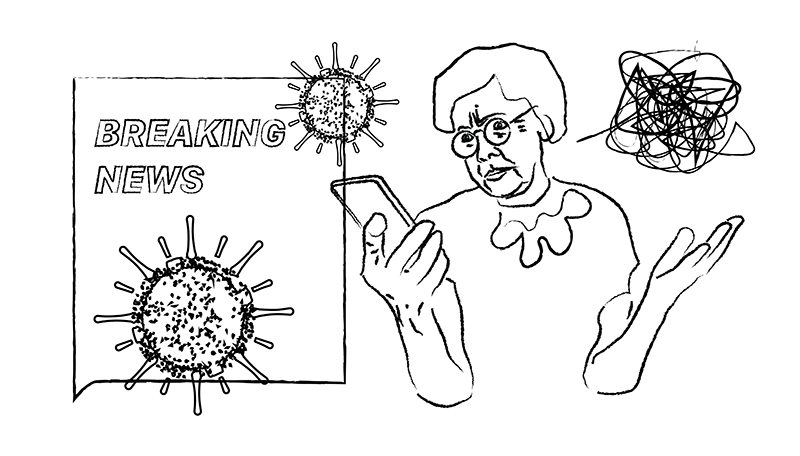
Shirley is a 62 years old woman, overwhelmed by the COVID-19 news.

Luckily, she has a friend called Ian who recommended a WhatsApp chatbot.

Shirley received viral news about a certain famous person infected by the virus. FYE confirmed it and provided more information to validate the result.
She also received that drinking bleach can cure COVID-19 from Tom in the group chat. The chatbot identified the news as fake immediately, and warned Shirley.

FYE also provides ‘Top trends of fake news’. FYE also provided tricks and tips on how to identify questionable websites and information to help Shirley for next time.

Shirley feels that she doesn’t have to be constantly worried. With the help from her chatbot- FYE, Shirley slowly understands and becomes digitally street smart.

The solution in action
FYE Mobile Application
A simple onboarding
A three step process helps the user activate the plugin across platforms while creating a profile to track misinformation.
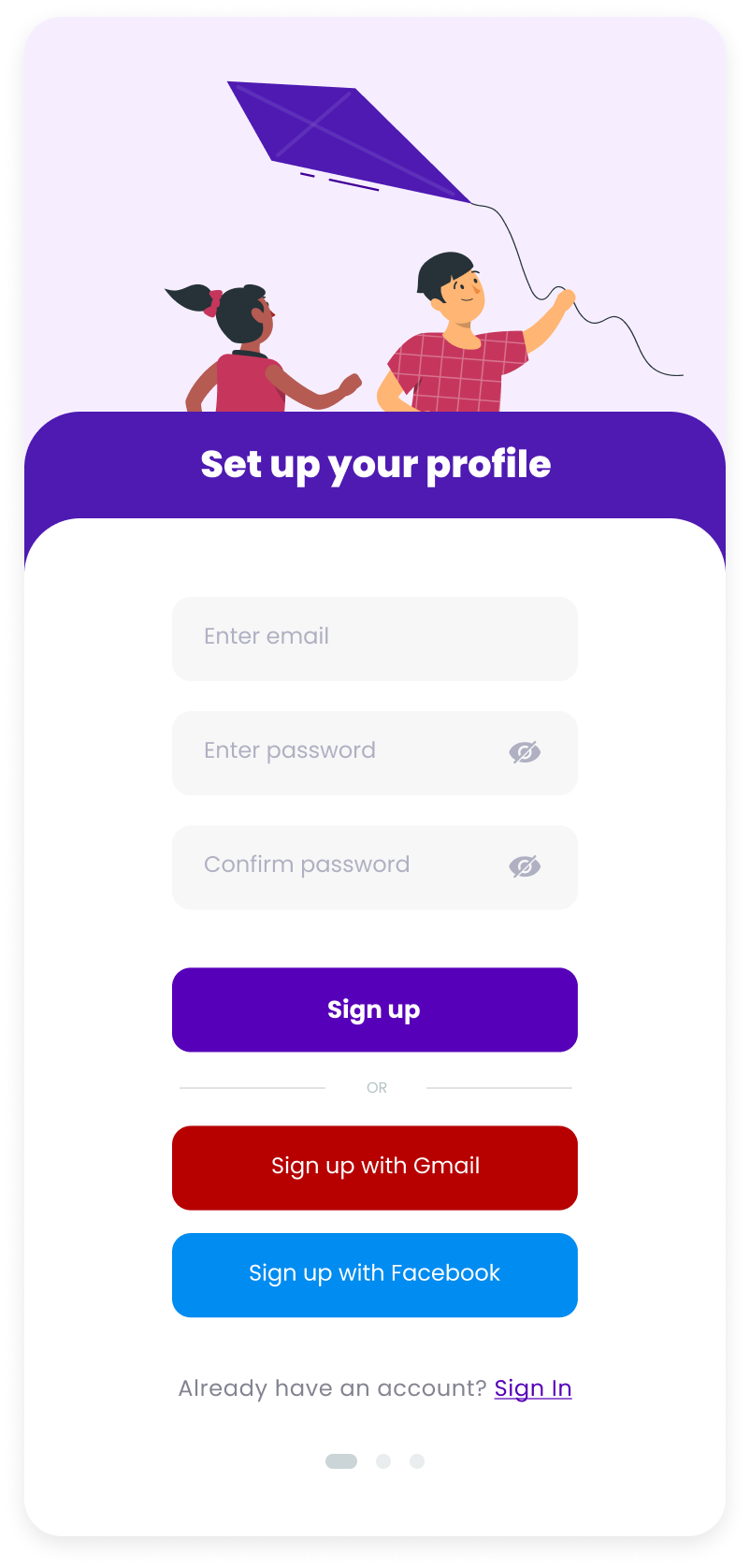
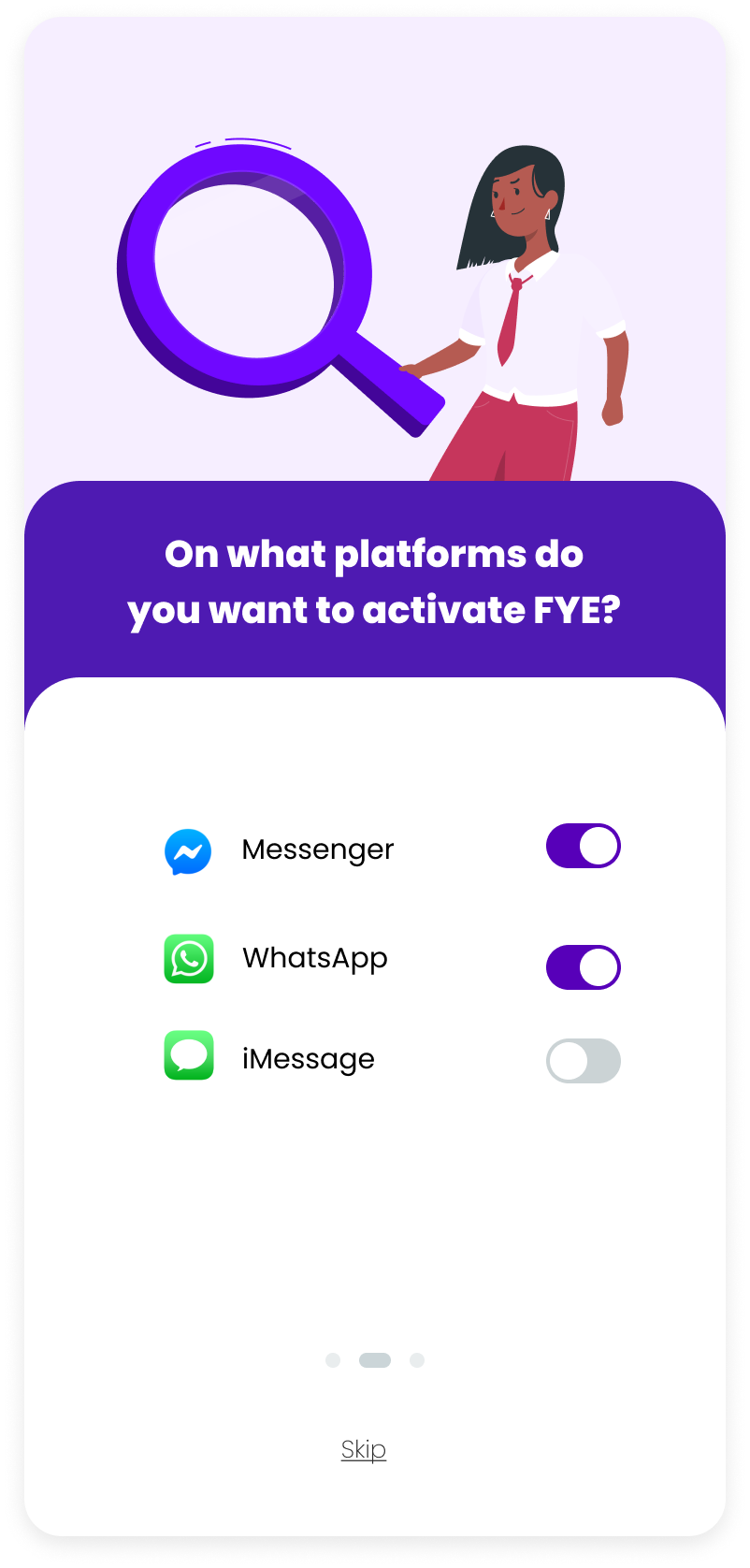
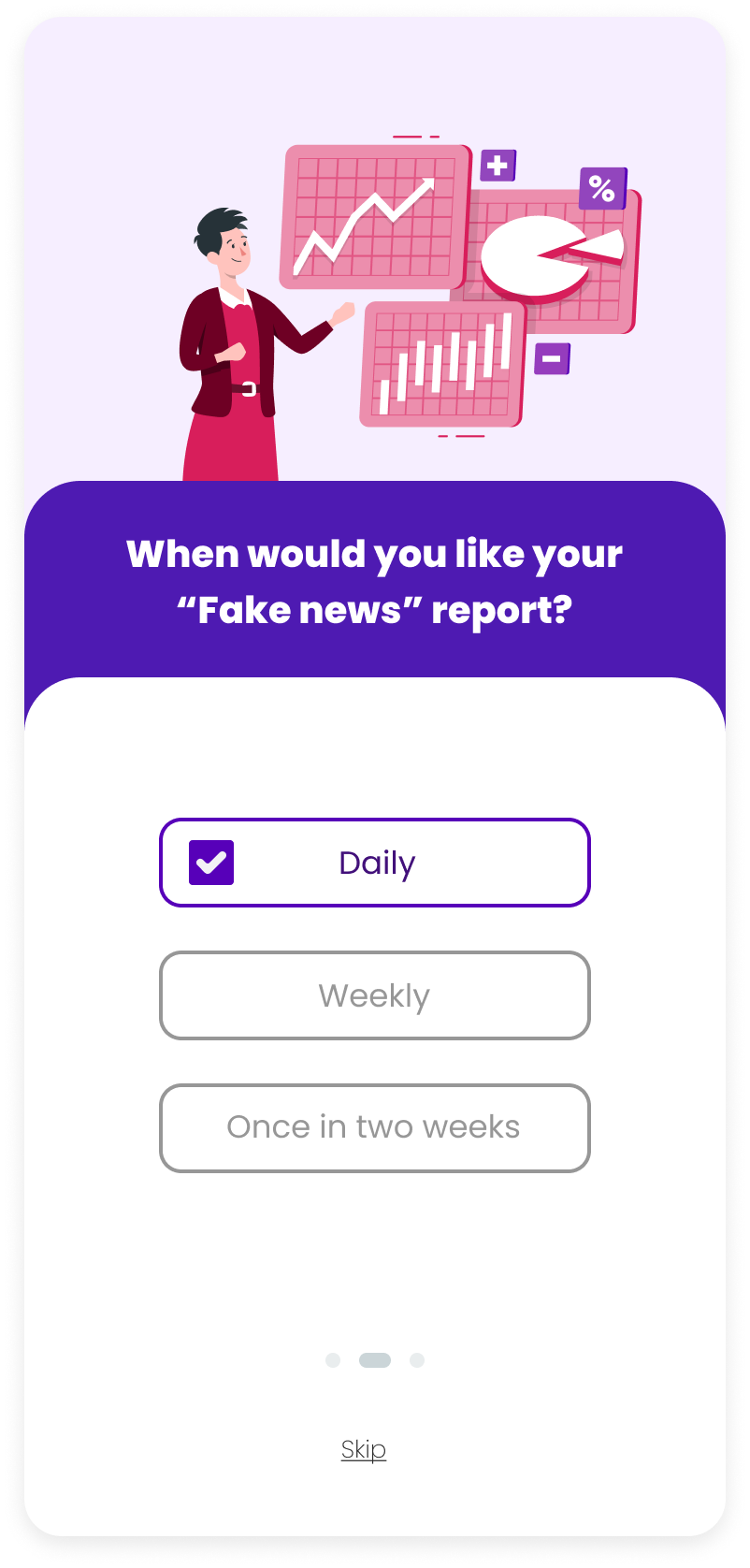
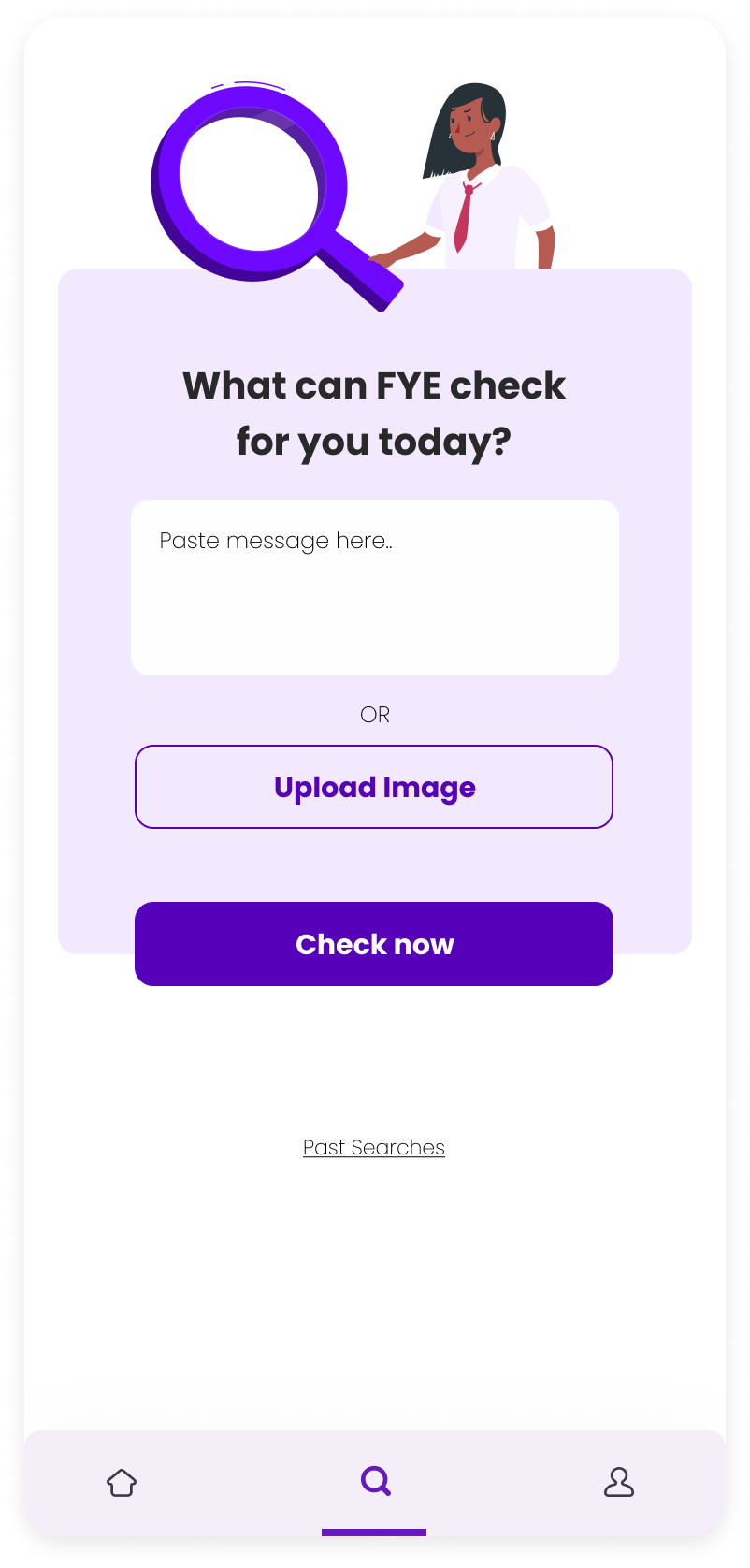
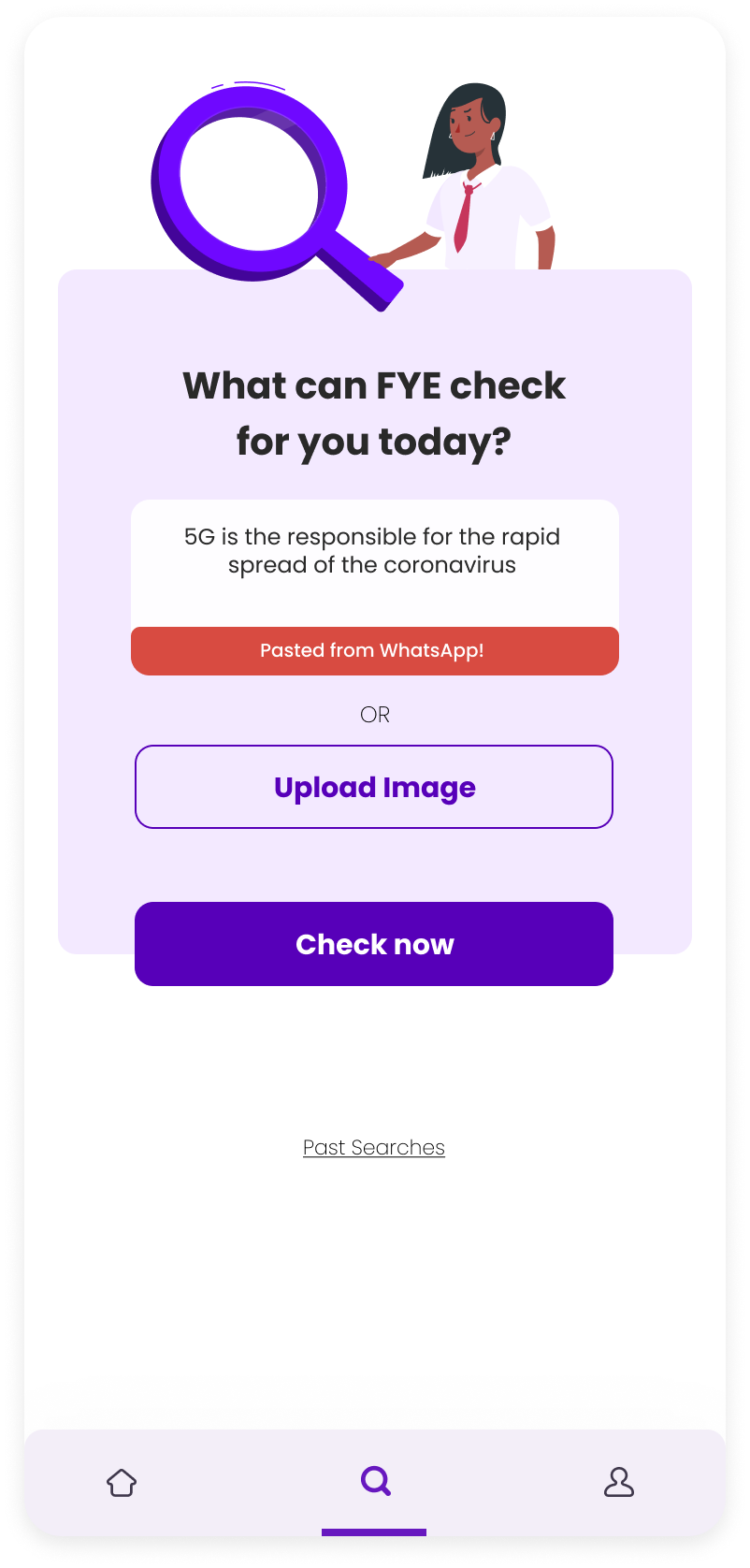
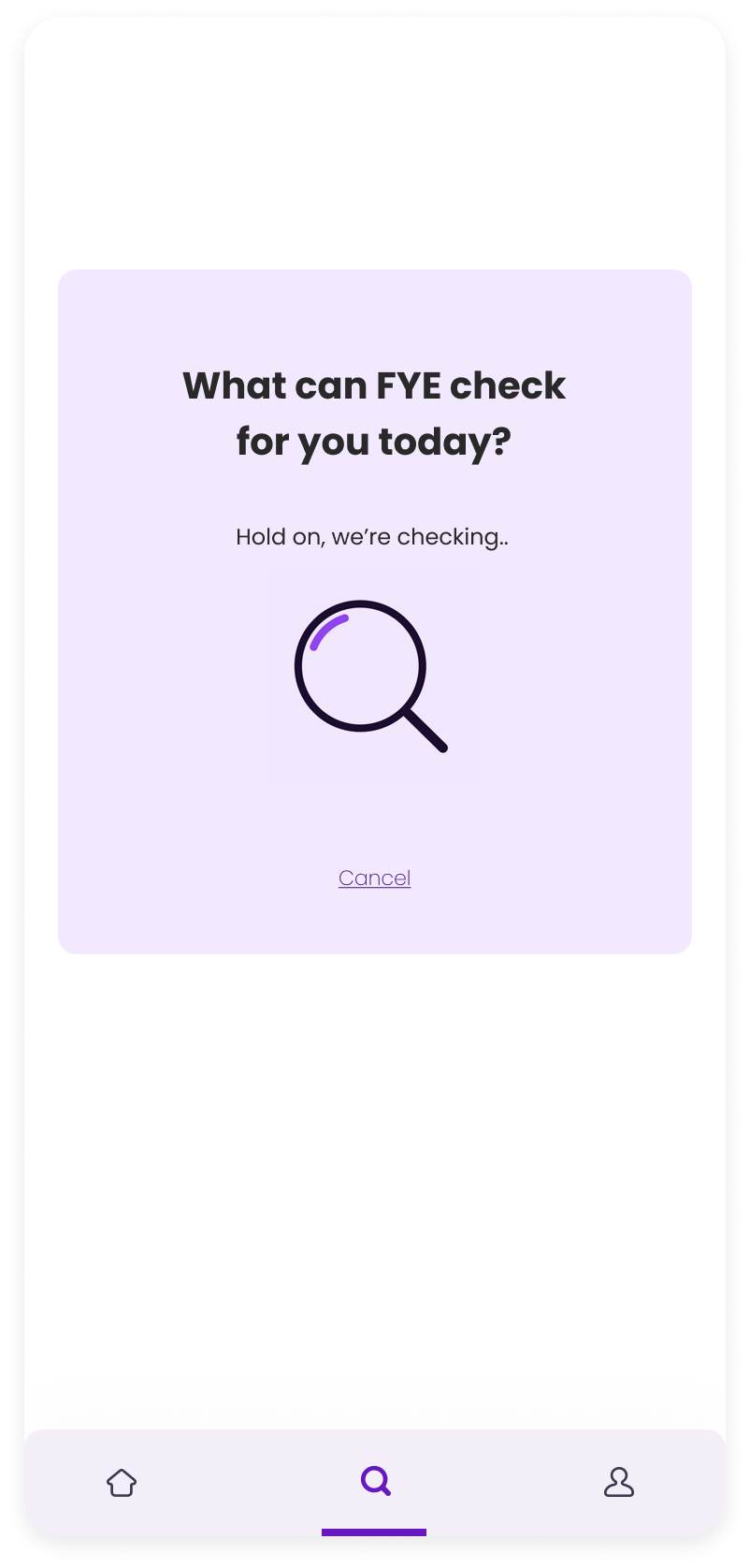
Accessible Search functionality
As platforms for communication grow daily, this helps in easy copy pasting from anywhere. It also gives a notification from where it has been copied.

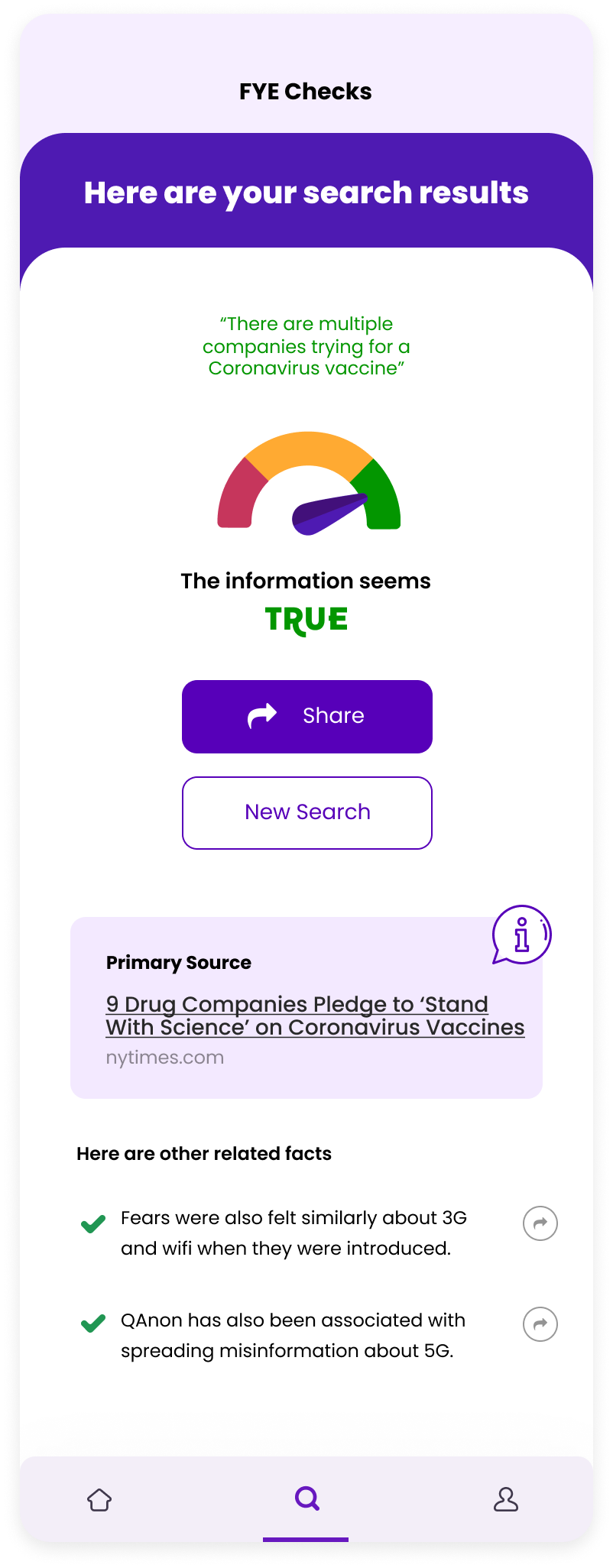
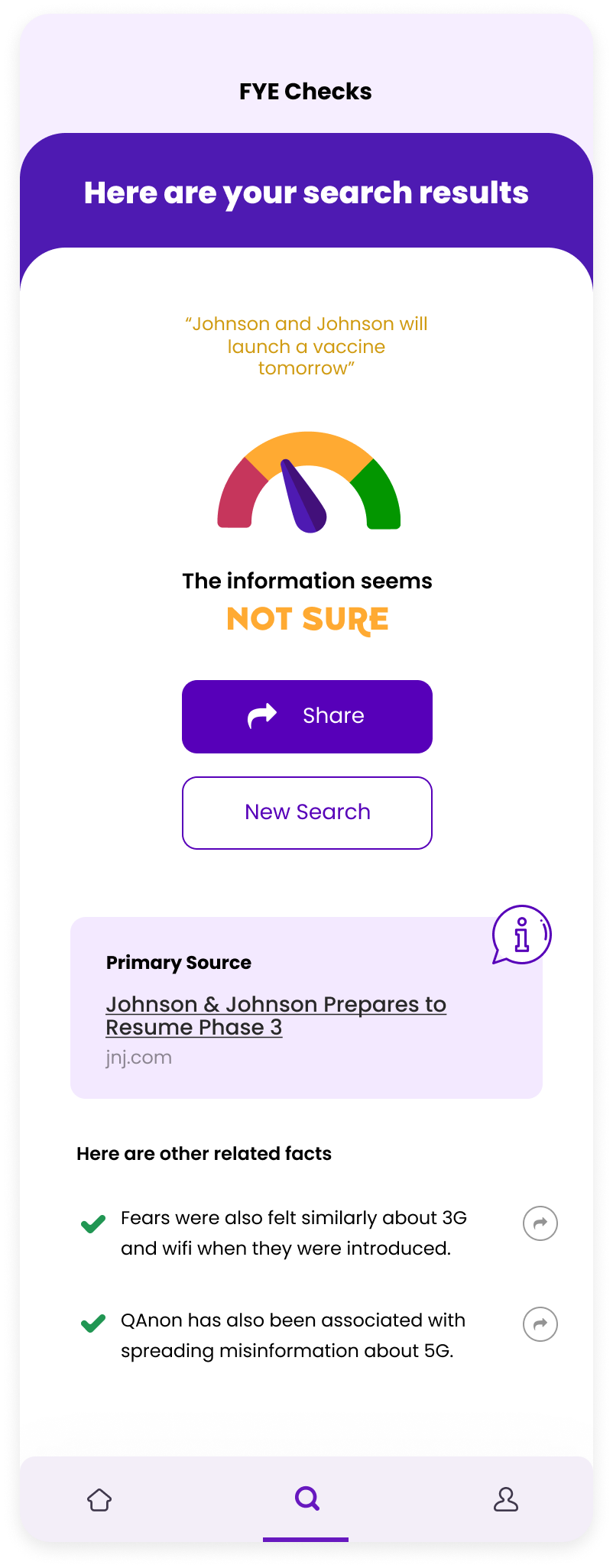
< A meter vs a tick/cross mark
Earlier, the app used tick marks, crosses and dashes to indicate results. We then moved to the meter to showcase how sure we were of something.
< Quick Sharing
Easy sharing of the correct information to help users support their arguments
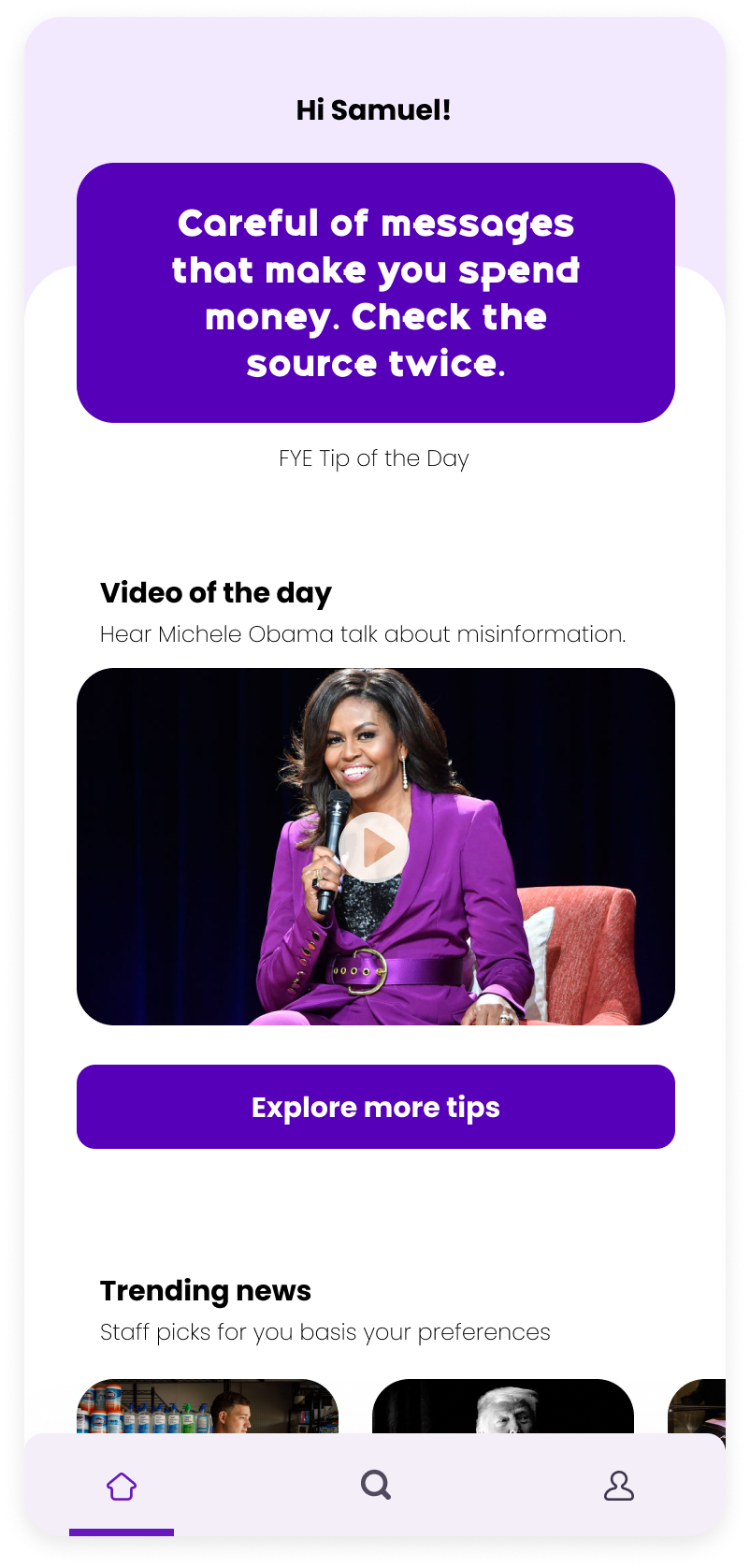
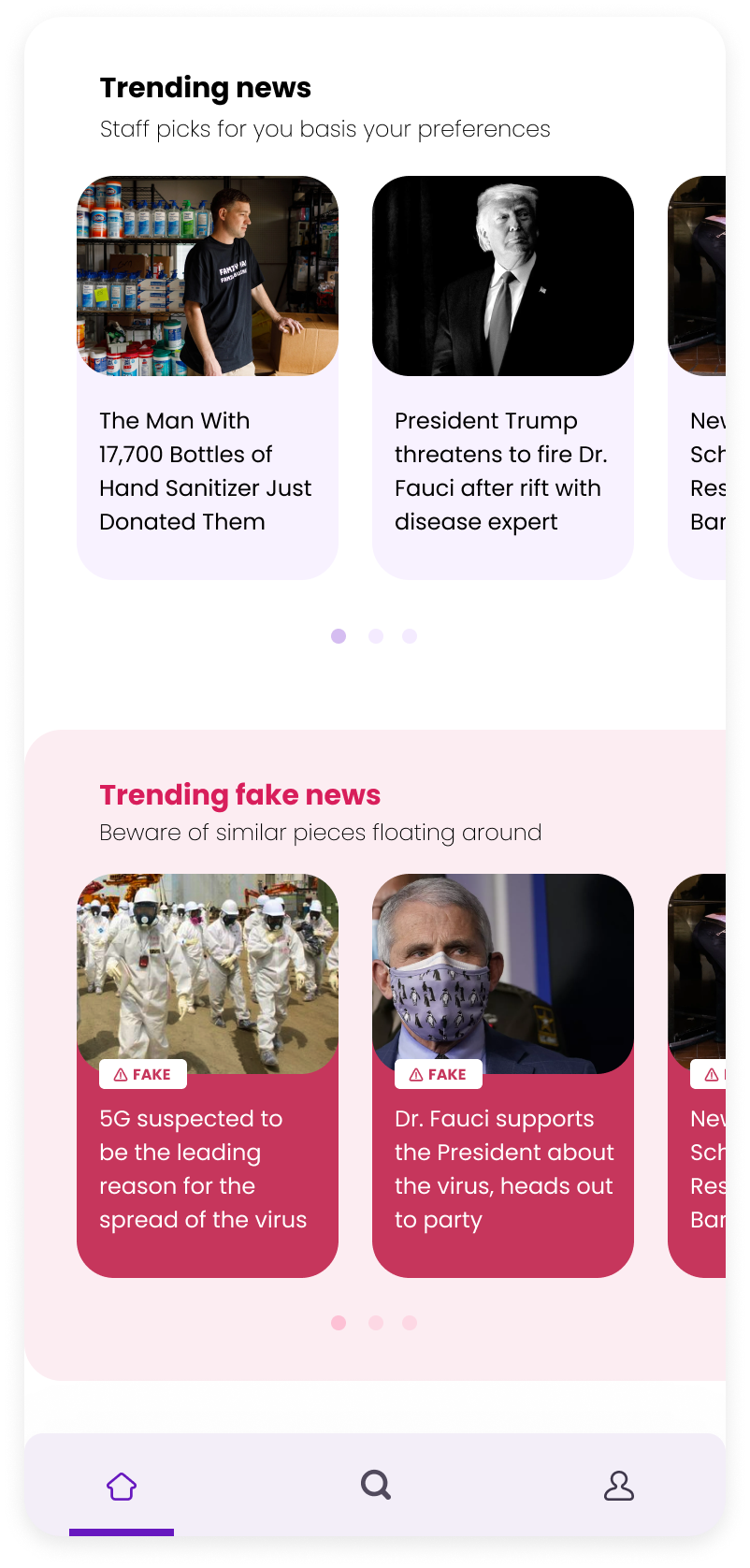

An informative Home screen
A tip of the day and the video of the day educate the user to be digitally smarter. Their chosen news genres and trending fake news help them see the bigger picture.
They can directly submit a message spreading misinformation to help others.
A powerful profile
The profile page helps the user track their overall misinformation across platforms where the FYE plugin is active, and from the searches the user conducts.
The main aim and hope here is to eventually drive the user towards a lower percentage, caused by a shift in their behaviour of information consumption online.
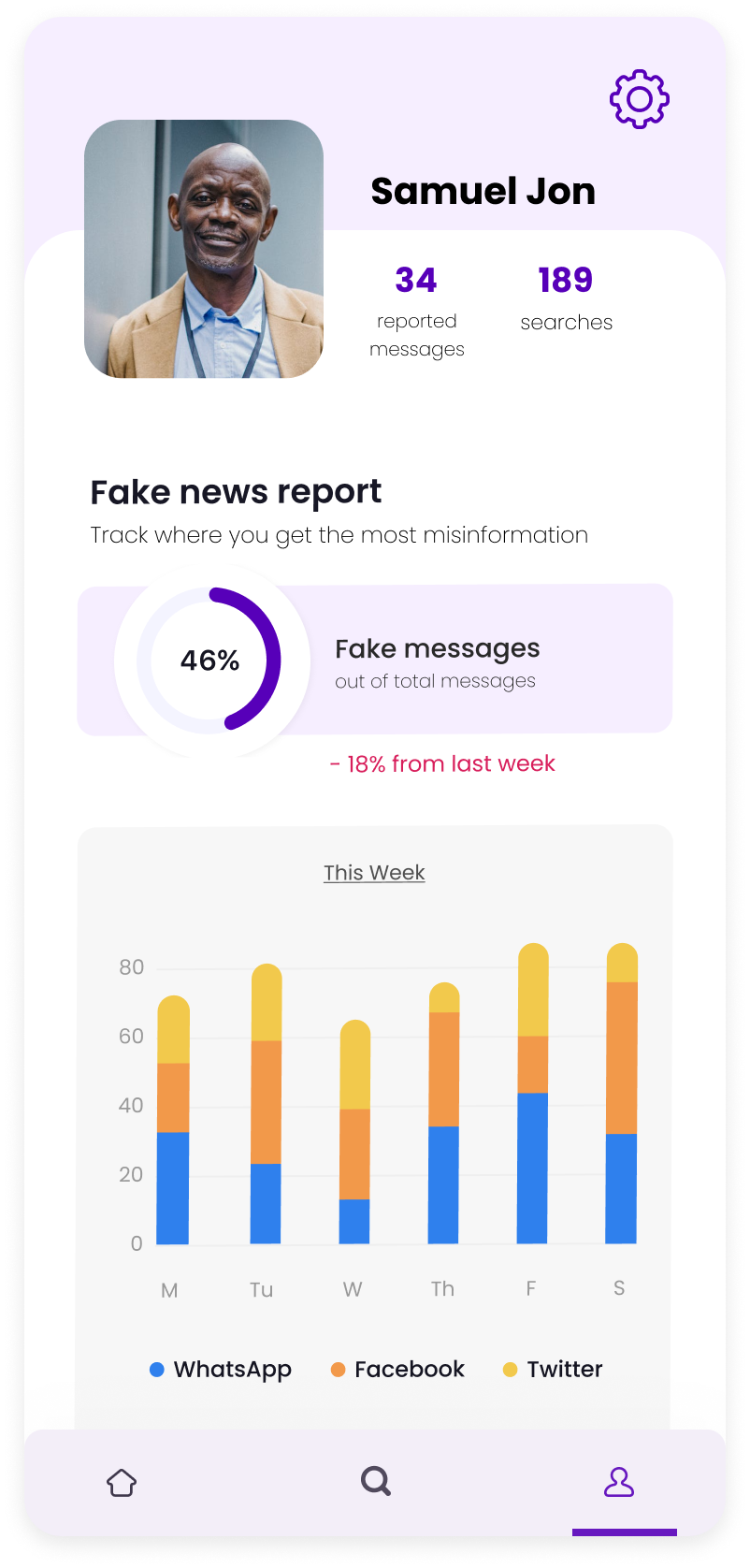
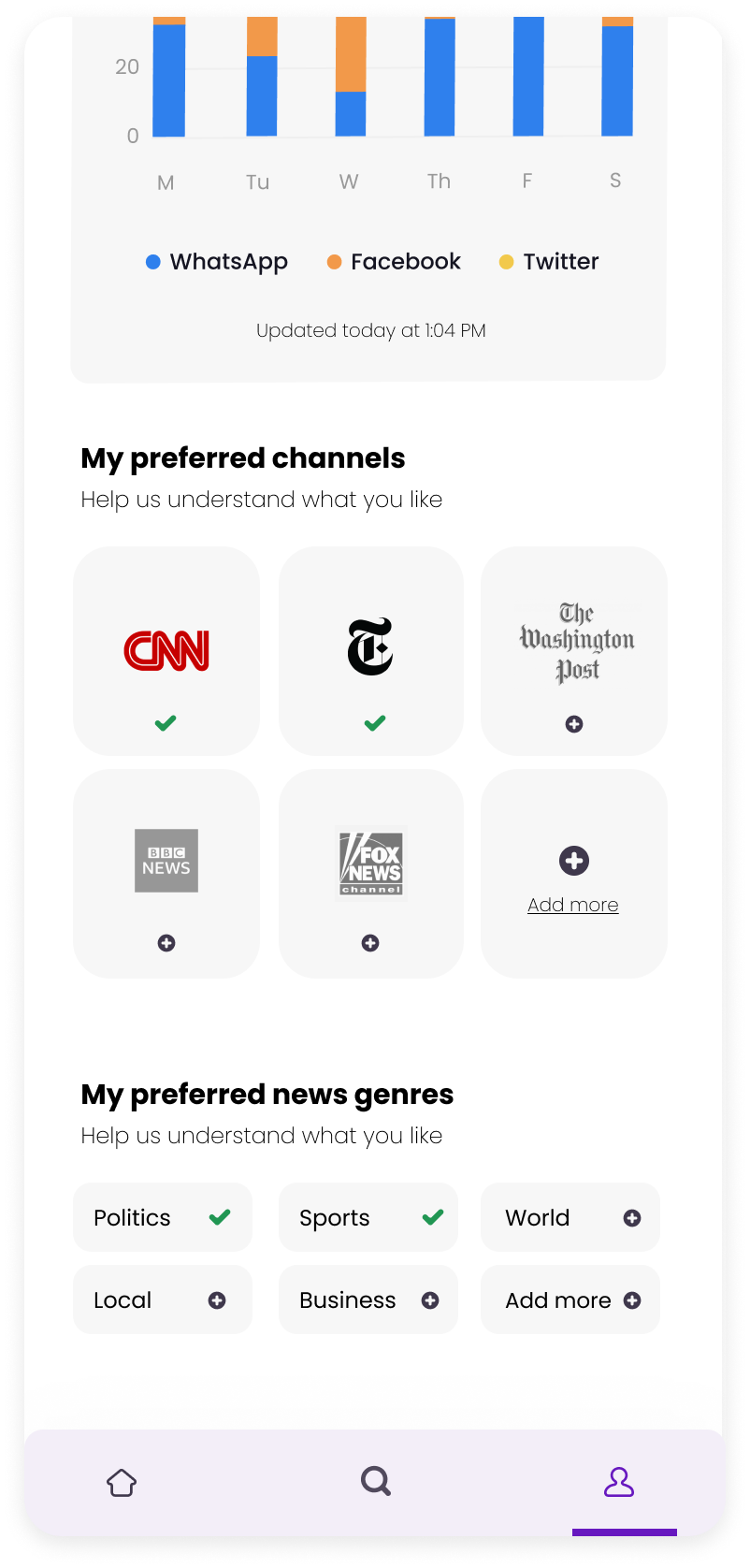
My Learnings
Dig deep while keeping bias in check
While you cannot get rid of bias completely, one has to learn to get past them and see all the other sides. Through this project, I also realized that sometimes the simplest things can solve problems if we identify the root cause right. Given a chance, I would love to take this prototype higher and test it with my target audience. I'm sure it will be bring up acessibility issues that can be worked upon for an audience that is often overlooked.
